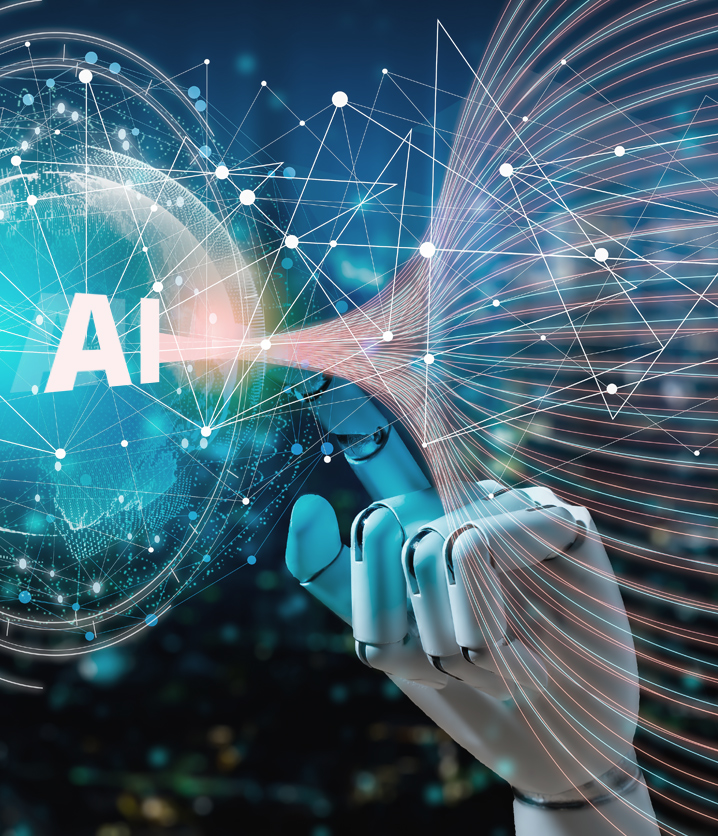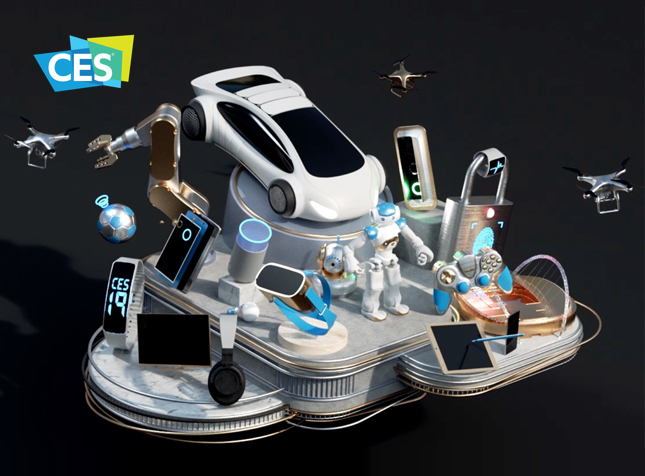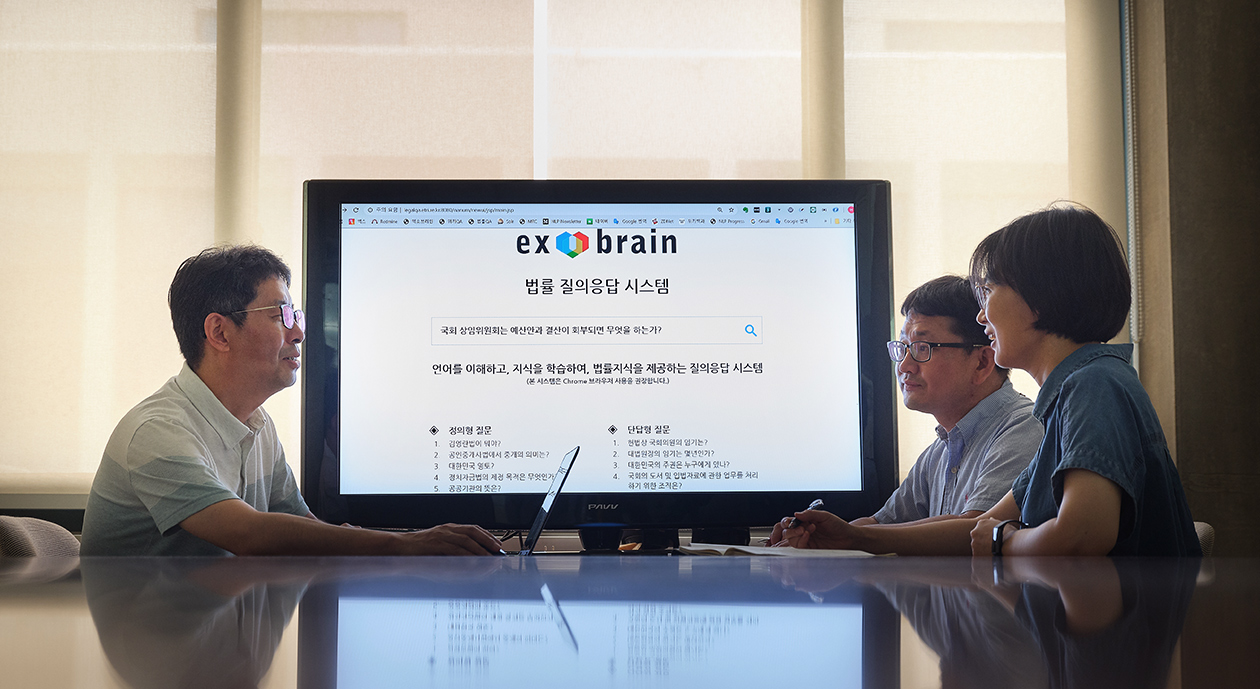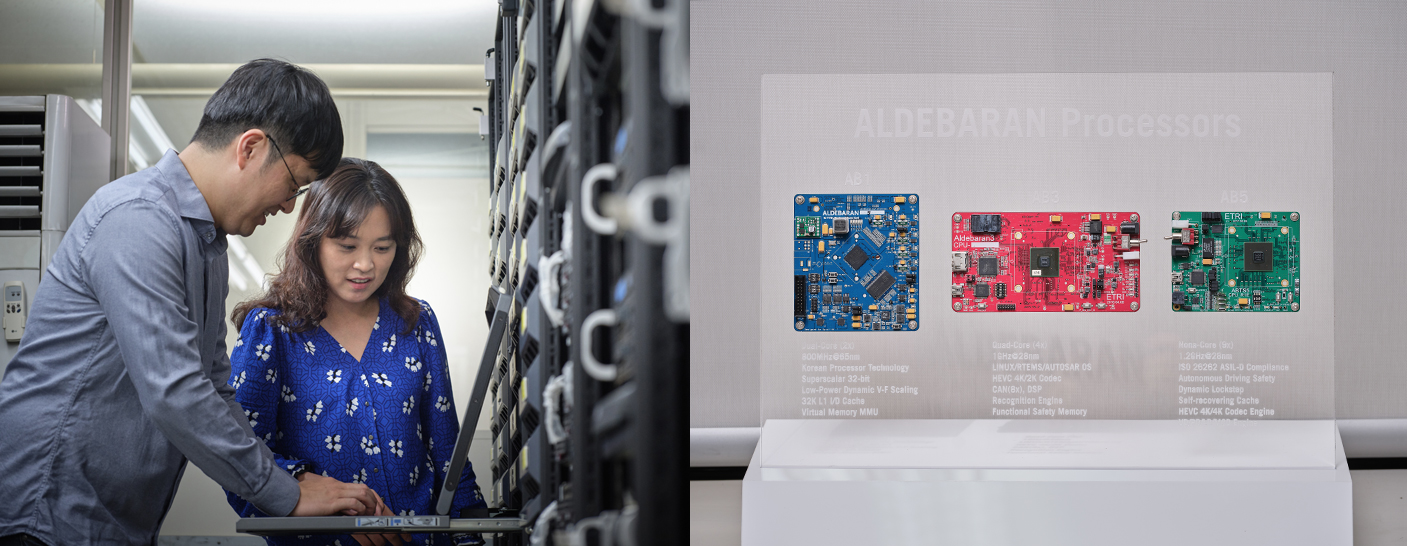VOL.57
October 2019


Special — The current status of AI worldwide
The current status of
AI worldwide
At the CES 2019, Steve Koenig, vice-president of the Consumer Technology Association (CTA), said that AI has now become “the table stake of the business game.” He meant that AI is now the essential platform for technology in most industries. As proof of this, it was hard to find an enterprise that was not using AI at the CES 2019. What are the main trends of technology incorporating AI worldwide?


© CES 2019
Trend of AI
The CES, the world’s largest exhibition of home appliances and IT products, is held by the US-based Consumer Electronics Association (CEA) in Las Vegas each January. The CES attracts much attention because it is the first of the three largest IT exhibitions to be held each year. It set a new record this year by attracting more than 4,600 exhibitors and 180,000 visitors from 165 countries. The key theme of the CES 2019 was AI. Most of the exhibitors showcased AI applications for image recognition and voice assistants, as well as 5G network optimization, TV display quality improvement, and autonomous driving. Four companies presented keynote speeches at the CES 2019, with US-based IBM and Korea-based LG Electronics introducing AI as the main theme.
LG Electronics CTO Park Il-pyung appeared on stage with Cloi, a guide robot, to present a keynote speech titled “AI for an Even Better Life” in which he emphasized three leading AI trends, namely, small data, learning at the edge, and lifelong learning. He explained that a washing machine, for example, requires only an individual customer’s washing pattern (small data), rather than the patterns of many customers, in order to learn the customer’s washing pattern. In other words, the washing machine learns the customer’s data (“learning at the edge”). In this respect, LG Electronics aims to provide an optimized service throughout the entire lifetime of a washing machine that has learned the customer’s washing pattern (“lifelong learning”). Dr. Park added that AI would evolve from operation according to a simple user command, such as “Start washing”, to proactive AI that checks the user’s schedule and adjusts the time by autonomously setting the speed mode.
Meanwhile, IBM CEO Ginni Rometty emphasized the importance of data with the term “Deep Data,” and estimated that we utilize less than 1% of the world’s data at present. She also argued that the enhancement of AI performance could facilitate greater segmentation and increasing utilization of “deep data” that are not currently being collected and analyzed. She also suggested the possibility of weather forecasts that are segmented into time units and regions. Moreover, she introduced the “Project Debater,” an AI development project for natural language processing that enables robots to debate with humans. The AI “Speech by Crowd” platform developed under the project can hear and recognize an opposite party’s arguments concerning various social issues. In addition, it can analyze more than 300 million articles, academic papers, and records in 10 minutes and present a compelling argument. It is IBM’s attempt to advance AI technology from its current level of being able to perform only learned tasks to that of being universal and able to understand diverse contexts.

Exobrain, which is currently under development by ETRI’s AIRL.
Research for the leap forward to becoming an AI powerhouse
The advancement of AI is an important area of active research among Korean and global organizations and companies alike. ETRI, the National AI Research Institute, is developing technologies related to natural language processing that understands language and learns knowledge in order to provide knowledge services in natural languages. The ultimate goal of the research team is to enable knowledge communication between machines and humans.
Exobrain is a technology for finding short answers using AI and has proven its excellence by winning a quiz program. AI, the core of Exobrain, is a Korean analysis technology that can analyze the syntax and semantics of a text; a knowledge learning and accumulation technology that can learn and store the knowledge contained in large texts; and a query-response technology that can understand questions structured as sentences and infer correct answers. Exobrain is currently in phase 2 of its development, in which it is expected to be able to answer questions in sentence form and learn specific areas of knowledge. Although at present it must be trained for specific areas, the research team envisages AI answering questions in a wide range of fields based on the accumulated knowledge.
As such, the current level of AI is called “single intelligence” because it can only answer a question within, and not outside, the scope of learned data. Humans have the ability to infer, but AI is not yet able to infer questions in an area it has not learned. Therefore, many countries around the world are conducting R&D programs aimed at taking an early lead in this technology area. For Korea to leap ahead as an AI powerhouse, it will be necessary to continuously develop AI so as to be able to infer new knowledge via continuous learning.

The Future Computing Research Division of ETRI’s AIRL (left) and Aldebaran in development at the AI SoC Research Division (right).
ETRI is dedicated to creating a future society centered on AI
The CES 2019 introduced many applications of AI-based digital assistants centered on smart speakers for not only smart home devices but also gaming keyboards, mice, smart mirrors, and even mattresses. In the US some 53 million adults, or 21.2% of the total adult population, own a smart speaker, and 53% of them use it every day, indicating that voice assistants embedded in smart speakers have become part of our daily lives.
Its next widespread application will most likely be in vision recognition. Unlike voice recognition, which is led by the giants Google and Amazon, many companies have applied vision recognition in various industries. Horizon Robotics introduced a CCTV system in which the company’s AI chip is applied to cameras to recognize the faces of all people who come within the camera’s field of vision in crowded places such as the front of a pedestrian crossing. In Korea, Kia Motors has introduced the concept car READ, referring that it can read even the customer’s emotions. The technology recognizes a passenger’s emotions through his or her facial expressions and utilizes information, such as heartbeat and body temperature, acquired through the biometric sensor mounted on the steering wheel. It highlighted the personalized user experience (UX) of the vehicle by programming the optimal indoor environment, including the music, temperature, lighting, and aroma to suit the situation. As such, R&D that focuses on the application of AI to various industries and the creation of new technological concepts is becoming increasingly important.
The Artificial Intelligence Research Laboratory (AIRL) was established with the strategic goal of laying the foundations for a super-intelligent information society in which humans and artificial intelligence can co-exist, and realizing super-performance computing that overcomes the performance limitations of artificial intelligence. To achieve these goals, AIRL is developing key technologies such as complex AI, intelligent robots, autonomous self-driving vehicles, AI SoC, and AI supercomputers. It has adopted a hybrid R&D strategy that includes core technology research and mission-based research, such as enterprise support and social problem solving, with the aim of advancing Korea’s AI technology and strengthening the capabilities of the related industries. More than 450 masters and PhD researchers in the field of artificial intelligence and ICT are in charge of core research and development, and are pursuing technological innovations through open R&D strategies involving joint research with universities and companies. The term AI appeared at the CES for the first time only two years ago in 2017. The fact that AI has become the keyword of the CES by converging with various industry groups in merely two years points to the widespread application and impact of AI in the near future. It will be interesting to see how AI evolves and to discover which AI services will already be present in our daily lives at the CES 2020.



